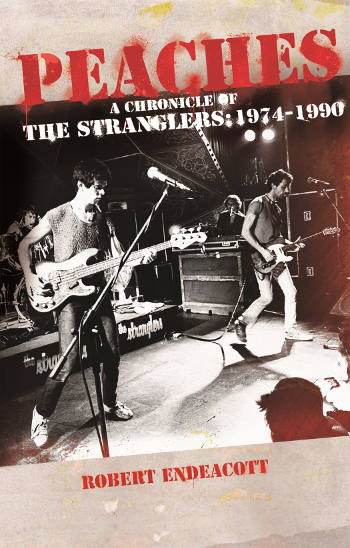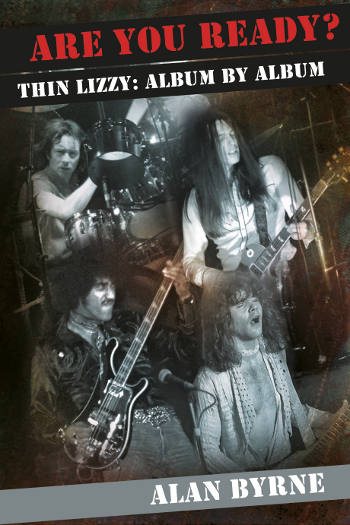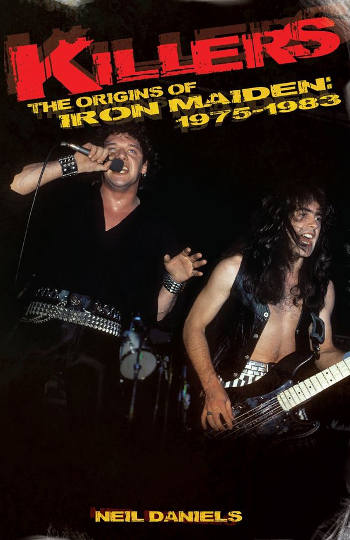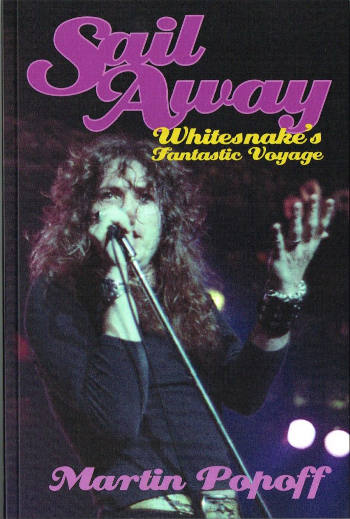
by Alexandra Mrozowska
– Senior Columnist —
 Although an English author Robert Endeacott is mostly known for his semi-autobiographical books on the West Yorkshire’s football club Leeds United, it seems he finds a common point between the struggles of a football club and the struggles of a music band! At least that’s what one could have concluded, guessing by the fact that in 2014 – after a football-themed book series – he started to explore a different literary genre, this of music biographies. It’s also 2014 when Endeacott-penned biography on the English punk/new wave band The Stranglers saw the light of day. Entitled Peaches: A Chronicle of the Stranglers: 1974–1990, the book was released via Soundcheck Books in July.
Although an English author Robert Endeacott is mostly known for his semi-autobiographical books on the West Yorkshire’s football club Leeds United, it seems he finds a common point between the struggles of a football club and the struggles of a music band! At least that’s what one could have concluded, guessing by the fact that in 2014 – after a football-themed book series – he started to explore a different literary genre, this of music biographies. It’s also 2014 when Endeacott-penned biography on the English punk/new wave band The Stranglers saw the light of day. Entitled Peaches: A Chronicle of the Stranglers: 1974–1990, the book was released via Soundcheck Books in July.
The specificity of Peaches is that it doesn’t cover the so-called post-Cornwall era in the Stranglers’ history, that is – the period after the departure of the group’s founding member – guitarist/singer Hugh Cornwall. On the other hand, it’s this ‘classic’ period of the band that’s the most prolific and important, what somewhat explains the author’s probable intentions. With such an approach, the quality of selectiveness to the book is hardly a drawback.
The book itself is also amazingly concise as for its quality of covering a span of long 16 years – from 1974 to 1990. It’s mostly due to its format – not as much of a typical story but a month-by-month report/diary that leads a reader throughout the band’s ‘classic’ period from one important date to another. Hence, the subtitle “chronicles” is certainly not an accidental one as the book chronicles the Stranglers’ dynamic history from 1974 to 1990 in its slightest detail indeed. However, the narration somehow contradicts the format, the author occasionally getting personal in his commentary and presenting a hardly unbiased fan’s viewpoint that is to be sensed by the reader quite clearly throughout the whole book. The other ‘voices’ in the book are these of the band themselves, their co-workers, reviewers and fans, all frequently quoted especially in the sections devoted to concert coverage. Even the particularly controversial opinions are quoted, what altogether adds much authenticity to the entire report.
Apart from the detailed chronicles of the band’s ups and downs, the book focuses on the vague place the Stranglers’ occupied in a history of music – a band perhaps a bit too sublime to be classified as regular representatives of punk and dubbed ‘Punk Floyd’ in their early press coverage not without a reason. The author juxtaposes the Stranglers with other bands of the era, Sex Pistols for instance, so as to point out to the difference between the uniqueness of the former and the manufactured, product-like quality of the latter. A reader is therefore given an interesting insight into the punk/new wave/alternative rock scene of the ‘70s and ‘80s as well as punk-ish concert practices rather unknown to a person who’s not a part of the subculture. Many a reader may therefore raise an eyebrow at the gigs embroidered with ripping out the seats or the ritual of spitting at the band members – to the point of wondering if it was all unfair to associate punk with aggression and riots among the audience? Discussions aside, also the less known, behind-the-scenes kind of stories from the Stranglers’ history are brought to light, from their pretty straightforward ways of dealing with troublesome gig participants and their conflicts with the law to their love-hate (more emphasis on ‘hate’) relationship with the press.
Of course, there is much of space devoted to each and every album released between the 1977 and 1990, when the key member Hugh Cornwall left the group thus ending the period Endeacott focuses on. Every album release is followed by an author’s track-by-track summary often delivered in a bit mischievous manner and a ‘proper’ review provided by either a fan or a music journalist. Another asset to the book is the author’s meticulousness in describing various details related to the band’s studio work and live performances, from the improvised changes in live renditions of their songs (especially the titled song “Peaches”) to the comprehensive write-ups on songs not included on the regular vinyl releases but widely known among the group’s fan-base.
What is also striking about Peaches is the overall scarcity of graphic embellishments, the book’s content printed in the typewriter font against the inclusion of few black-and-white photos portraying band members at various stages of their career, live and backstage. It somewhat resembles in its graphic form what is perhaps the most genuine one in rock writing and also, primarily associated with the punk scene itself rather than any else – the DIY underground fanzines printed on photocopied black and white paper. It also corresponds with the Stranglers’ famous ‘meninblack’ attire and their manifested lack of interest in the rock’n’roll glamour of any kind.
Peaches: A Chronicle of the Stranglers: 1974–1990 is obviously a must-have for any Stranglers fan, but with its exhaustiveness and interesting format it guarantees an enjoyable reading for any open-minded rock listener even not necessarily being into punk/new wave kind of thing. The book chronicles a birth of the genre that was breakthrough in many respects, with its main protagonists portrayed as the particularly exceptional individuals who valued their originality more than anything else, much more than fitting the audience’s tastes and conforming to the rules of the music industry. Recommended.
ISBN: 9780957570047
Publisher: Soundcheck Books



